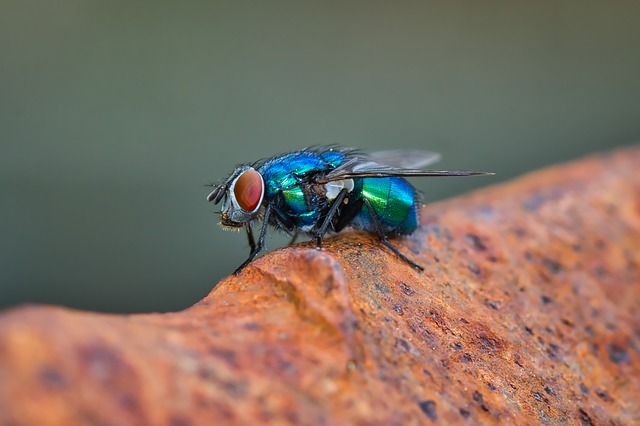Rodent infestations in homes pose significant risks to property and health due to their contamination of food supplies, gnawing habits, and fire hazards. Effective residential pest control involves sealing entry points, maintaining cleanliness, and using tailored traps or repellents. Professional services employ advanced techniques like exclusion and habitat modification, eliminating current infestations while preventing future ones through regular inspections and customized treatment plans. Homeowners can safeguard their investments and maintain a healthy environment by incorporating maintenance practices such as sealing gaps, fitting screens, trimming trees, maintaining cleanliness, and conducting regular inspections.
Rodent infestations can cause significant damage to properties and pose serious health risks. This comprehensive guide explores effective residential pest control strategies, focusing on rodents. We’ll delve into understanding common pests, their behavior, and the impact they have on both property and human well-being. From professional services to maintenance tips, discover how to safeguard your home and family from these unwelcome visitors, ensuring a comfortable and safe living environment.
Understanding Rodent Infestations: Common Pests and Their Behavior
Rodent infestations are a common concern for many homeowners, posing significant risks to both property and health. Recognizing the signs and understanding the behavior of these pests is crucial in effectively addressing an issue that can quickly spiral out of control. Rats and mice, the most prevalent rodents in residential areas, are adept at finding their way into homes through tiny cracks and openings, often seeking shelter and food sources. Once inside, they establish nests, reproduce rapidly, and create intricate networks of burrows, making them difficult to eradicate.
The destructive nature of rodents is multifaceted. They contaminate food supplies with their droppings and urine, leading to potential foodborne illnesses. Moreover, their gnawing habits can cause extensive damage to wiring, insulation, and even structural components of buildings. Regular residential pest control measures are essential to prevent these issues, employing strategies such as sealing entry points, maintaining cleanliness, and using traps or repellents tailored to specific rodent species.
The Impact of Rodents on Property and Human Health
Rodents, such as rats and mice, can cause significant damage to properties if left unchecked. They gnaw on wood, electrical wiring, and insulation, leading to potential fire hazards and costly repairs. In addition, rodents can contaminate food sources and leave behind droppings, which can trigger allergies and respiratory issues in humans. The presence of rodents is not only an inconvenience but a serious health concern.
In terms of residential pest control, addressing rodent infestations promptly is crucial for maintaining a safe and healthy living environment. Professional rodent control services employ effective methods to eliminate current populations and prevent future invasions, ensuring peace of mind for homeowners. These services utilize advanced techniques and treatments to safeguard property while prioritizing the well-being of occupants, making them an essential component of comprehensive residential pest control strategies.
Effective Residential Pest Control: Strategies and Services
Rodent control is a critical component of effective residential pest control services, aiming to safeguard both property and health. Professional exterminators employ a variety of strategies, from traps and baits to more eco-friendly methods like exclusion and habitat modification. These services not only remove existing rodent infestations but also implement preventive measures to deter future invasions.
Comprehensive residential pest control packages often include regular inspections, tailored treatment plans, and ongoing maintenance. Exterminators use advanced technologies and industry-leading products to ensure safe and effective results. By addressing rodent issues promptly, homeowners can protect their investments from costly damage, maintain a healthy living environment, and rest easy knowing their property is secure.
Preventing Future Infestations: Maintenance Tips for Homeowners
To prevent future rodent infestations, homeowners should implement regular maintenance practices as part of their residential pest control strategy. Start by sealing any gaps or cracks in walls, floors, and ceilings with appropriate materials like steel wool or caulk. Ensure all doors and windows are fitted with tight-sealing screens, and regularly check for signs of wear and tear that could provide entry points for rodents. Regularly trimming trees and shrubs away from the house, and storing firewood or other potential attractants off the ground, can also help deter rodents.
Inside the home, maintain cleanliness by promptly cleaning up food crumbs and spills, storing groceries in airtight containers, and regularly emptying trash cans with secure lids. Declutter spaces that may provide hiding places for rodents, such as stacked boxes or unused appliances. Additionally, consider using traps or repellents specifically designed for rodent control, ensuring they are used safely and according to manufacturer instructions. Regular inspections can also help identify potential entry points before rodents have a chance to establish a colony.
Rodent control is a vital aspect of maintaining a healthy and safe living environment. As discussed, rodents can cause significant damage to properties and pose health risks to residents. Implementing effective residential pest control strategies, such as those offered by professional services, is crucial for managing infestations. By understanding the behavior of common pests and adopting preventive maintenance tips, homeowners can protect their investments and ensure a comfortable, secure living space. Remember, proactive measures are key to avoiding future rodent problems.
